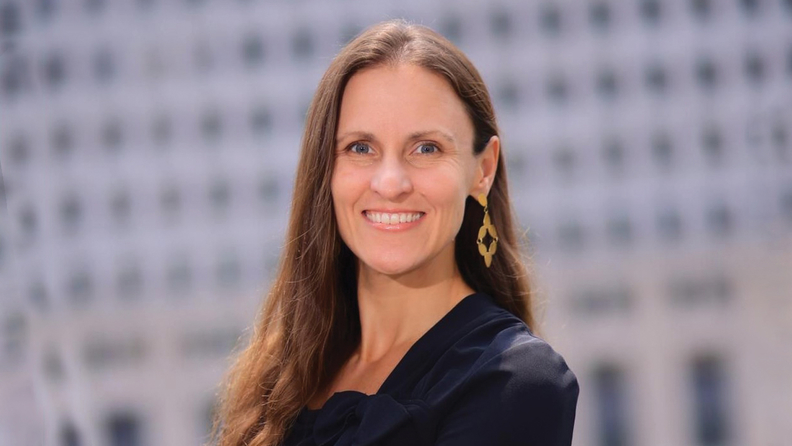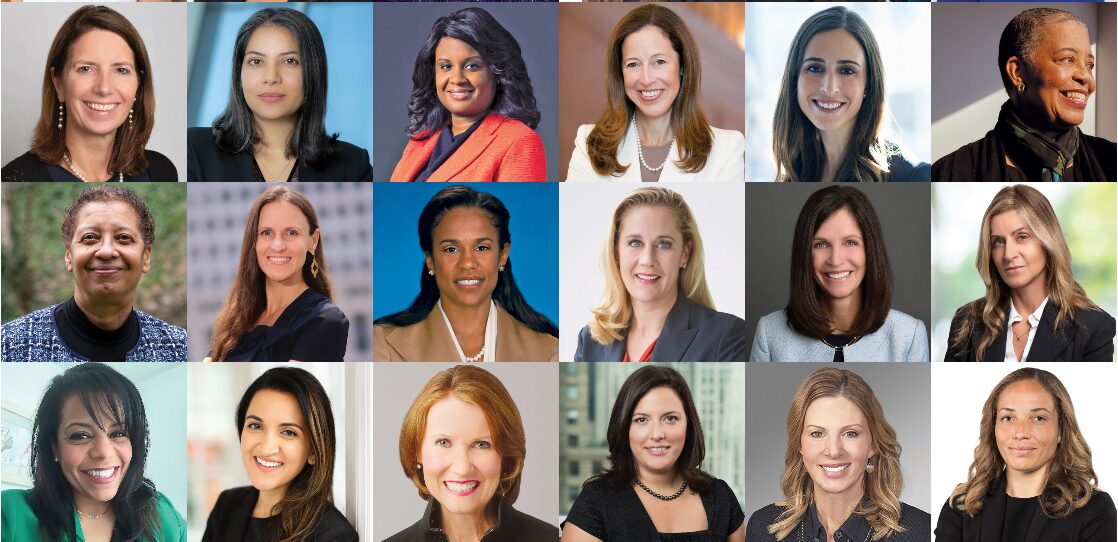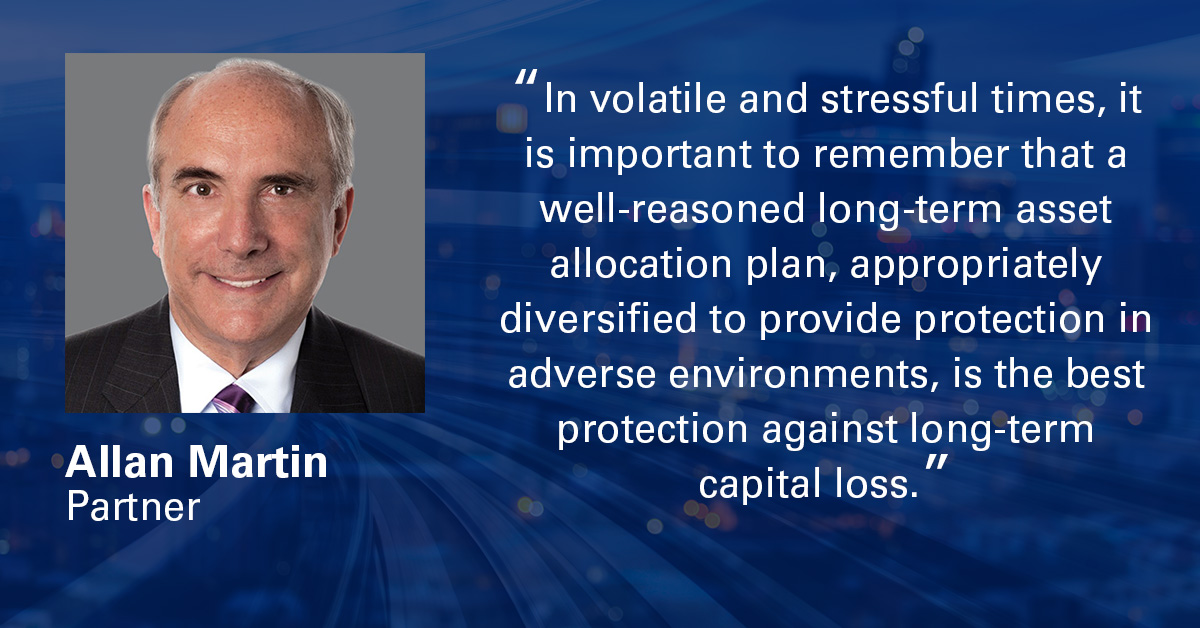FinancialPlanning: Is Private Equity's AI Gold Rush Happening Too Soon?
NEPC’s Joshua Beers recently wrote an article for Financial Planning that discusses artificial intelligence and the impact it’s having on the private equity space. View the article on FinancialPlanning’s site here.
The private equity AI gold rush is on, with PE and venture capital firms pouring more than $10 billion into the artificial intelligence and machine learning sector in the first half of 2023 alone, according to S&P Global Market Intelligence.
Ultrahigh net worth individuals, families and family offices are playing a key role in this story. These investors place a large portion of their wealth in private equity, providing a significant share of the assets that are funding AI’s development. In some notable cases, family offices are making a direct play on AI — for example, the Duquesne family office recently invested nearly half a billion dollars in AI-focused companies.
It’s easy to see the appeal of AI technologies and the desire to capitalize on them — it is reasonable to expect companies that successfully integrate AI into their business processes to be better positioned for future success. Likewise, firms that create superior AI platforms today will become essential partners for virtually all global businesses. For this reason, a huge number of new ventures in the private equity environment include at least some aspect of AI technology.
Click here to continue reading the full FinancialPlanning article.
The Wall Street Journal: Pension Funds Go Cold on Private Equity
NEPC’s James Reichert, Senior Director of Portfolio Strategy, sat down with The Wall Street Journal to discuss whether alternative investments have fallen out of favor for corporate pensions. James suggests that in today’s inflationary environment, plans may find it more advantageous to invest in publicly traded investment-grade, high-yield bonds and bank loans, without the added complexity and uncertainty of alternative assets. View the article on The Wall Street Journal’s site here.
Locking up funds for a long period is unpopular now because for the first time in years, easy-to-trade corporate bonds and bank loans offer appealing returns, thanks to rising interest rates. That has upended the retirement calculus for America’s corporate giants, after many spent years chasing nontraditional investments whose managers promised they could earn a lot more than stocks and bonds.
Companies now increasingly want quick access to cash so they can buy higher-yielding bonds or sell off retirement obligations to insurance companies. Long lockup periods on private equity and other private market investments mean they can’t easily unwind those complex bets, though.
. . .
The past couple of years have been rocky for private equity. Benchmark private-equity returns turned negative for the year ending March 31, for the first time since the 2008-09 financial crisis, according to a Burgiss Group index that excludes venture capital.
Today, a closed corporate pension plan can likely get the returns the company wants from publicly traded investment-grade and high-yield bonds and bank loans without the uncertainty and complexity of alternative assets, said James Reichert, senior director of portfolio strategy at investment consultant NEPC.
“You don’t necessarily need it,” he said.
Click here to continue reading the full Wall Street Journal article.
FundFire: Energy Transition as a Buyout Theme? Morgan Stanley, TPG Say Yes
NEPC’s Matt Ritter was quoted in a recent FundFire article to discuss how investment managers are reacting to shifts in opportunities in energy transition investing, as well as the importance of risk compensation and manager selection. View the article on FundFire’s site here.
The rapid growth of energy transition investing – focused on deals facilitating the shift away from fossil fuels and climate change-inducing technologies – has largely been an infrastructure asset class phenomenon, but now is increasingly sparking private equity transactions and funds.
. . .
“Certainly, there are growing investment tailwinds,” said Matt Ritter, head of real assets at NEPC. “Energy transition… used to mean solar and renewable utilities. Now, there’s a broader set of opportunities… and the investment manager landscape is reacting to that shift.”
A new subset of deal types is complementing hard asset solar arrays and wind farms with companies specializing in power grid improvements, electric vehicle components, battery storage and carbon capture or sequestering, Ritter said.
“Those are investments that span the risk-return spectrum,” he said. “Some don’t look like traditional infrastructure investments, because maybe it’s an investment in a company. It’s also a different risk profile and cashflow profile.”
Read the full article on FundFire’s website here.
Pensions & Investments: DC Funds Get a Much-Needed Rebound
NEPC’s Emma O’Brien was quoted in a recent Pensions & Investments article to discuss how fewer contributions are leading many providers to take another look at their core menu options. View the article on Pensions & Investments’ site here.
Providers of mutual funds and target-date funds for defined contribution plans saw their assets under management rise during the year ended June 30, thanks to the market recovery that allowed them to partially make up for the previous year’s losses.
. . .
Emma O’Brien, senior consultant at NEPC, said in a phone interview that about 63% of participant contributions go into target-date funds, and that has led some of their clients to take another look at their core menu options because they’re seeing so many fewer contributions than in the past.
“They have been offering a complementary menu of active and passive options as core options,” said O’Brien. “We’re taking a look at certain asset classes, whether offering an active option, a passive option or both.”
One such asset class is large-cap equities, where offering only a passive option would be the way to go since active managers have struggled to add value, she said.
Click here to continue reading the full Pensions & Investments article.
FundFire: Small Endowments to Outperform Large Peers in FY23, Consultants Say
NEPC’s Kristin Reynolds was quoted in a recent FundFire article to discuss the impact that the lag in private equity valuations and venture capital returns will have on endowments this year. View the article on FundFire’s site here.
As universities begin to release their year-end results, investment consultants and outsourced chief investment officers expect small endowments to post better returns than their large counterparts.
. . .
The poor venture capital returns are due to a lag in valuations, the same delay that caused them to outperform public equities in 2022. Now, private equity’s valuation lag has hurt the overall value of the asset class in the year-end results, while public equities posted strong results, NEPC Partner and Practice Group Director Kristin Reynolds said.
“I expect that endowments with higher levels of private markets will trail those with higher levels of public markets by a pretty large margin,” she said.
Read the full article on FundFire’s website here.
FOX Business: Chevron CEO: Oil Will Break $100 per Barrel 'Soon'
NEPC’s Jennifer Appel was quoted in a recent FOX Business article which focuses on how rising crude prices could create a new inflation headwind. View the article on FOX Business’ site here.
Chevron CEO Mike Wirth told Bloomberg that the price of oil “probably is headed for the $100 mark soon amid tightening supplies.”
Production reductions from Russia and Saudia Arabia have West Texas Intermediate (WTI) trading above $90 per barrel, while the global benchmark Brent Crude is hovering at $94 per barrel.
. . .
“Higher energy prices have a significant impact on headline CPI, and we expect these pressures to flow through to other aspects of inflation in the coming months,” Senior Investment Director of Asset Allocation at NEPC Jennifer Appel told FOX Business. “A sustained uptick in inflation resulting from gasoline prices will complicate the Fed’s efforts to curb inflation and may introduce an upward bias into interest rate expectations.” The Federal Reserve will announce its decision on interest rates Wednesday at 2 p.m. ET.
Click here to continue reading the full FOX Business article.
Pensions & Investments: Sarah Samuels Named to Influential Women in Institutional Investing List
Congratulations to Sarah Samuels, CFA, CAIA, Partner at NEPC, on her inclusion in the inaugural class of Pensions & Investments Influential Women in Institutional Investing. Read more about how Sarah’s non-traditional background has driven her desire to help others rise up in the industry: View the article on Pensions & Investments’ site here.
Despite being in the industry for 19 years, Sarah Samuels said she had a “non-traditional career path.”
After graduating college as a German major with no industry internship experience, she started out as an administrative assistant at Wellington Management Co. She worked her way through several roles and companies before becoming a partner at NEPC LLC in 2019. In her current role, she leads a 45-person investment manager research team representing $1.5 trillion in assets under advisement and management.
. . .
“Extremely hard work” was another factor to her success, she said. “I was told no many, many times for different roles or requests,” so “tenacity was important.”
Ms. Samuels said her non-traditional background is what drives her desire to help others rise up in the industry.
As a member of TBD Angels, Ms. Samuels invests in early stage ventures to help them grow. “For me, I have a focus on diverse founders, or organizations that have missions to improve diversity or social equity in our world,” she said.
Click here to read Sarah’s full Pensions & Investments profile.
Pensions & Investments: Need Career Advice? Here’s Hard-Won Wisdom
The inaugural class of Pensions & Investments Influential Women in Institutional Investing shared career advice they’d give to their younger selves. Our very own, Head of Investment Manager Research, Sarah Samuels, explains what she calls “30 seconds of bravery.”: View the article on Pensions & Investments’ site here.
P&I’s inaugural class of Influential Women in Institutional Investing shared what advice they’d give to their younger self, if they could go back in time.
What follows are some of the top answers:
. . .
Sarah Samuels, NEPC, is a big believer in what she calls “30 seconds of bravery,” which she learned about nearly a decade into her career. “If there’s something that you’d like to do, but you’re too scared to do it — think about asking for a promotion, asking for a raise. So it’s something big in your personal life even, that it makes you sweat to think about doing it… Just do it for 30 seconds. It can hurt that bad. Only so much pain can happen in 30 seconds if you do that hard thing. And I promise you it’ll change your life.”
Chief Investment Officer: Bill Ryan Named to 2023 Knowledge Brokers List
Congratulations to Bill Ryan, Partner & Head of Defined Contribution Solutions at NEPC, on being named to CIO’s 2023 Knowledge Brokers list. Read an excerpt from his Q&A session with CIO below, or view the full interview on Chief Investment Officer’s site here.
As a Partner at NEPC, an independent investment consultant, private wealth adviser, and outsourced chief investment officer provider, Bill Ryan leads the firm’s Defined Contribution (DC) Practice as the Head of DC Solutions. His role is to oversee more than 140 DC clients NEPC serves. Ryan helps plan sponsors address today’s increasingly complicated challenges, from governance model support and operational risk management, to using plan data more effectively to inform plan design.
. . .
CIO: What do you think will be the biggest innovation in your industry in the next 10 years?
Ryan: “Like so many industries, generative artificial intelligence (GAI) will transform our industry in the years to come. While the technology has existed for some time, tools like Chat GPT are now being embraced to help streamline day-to-day processes and allow for more brainstorming and collaboration on strategic problem-solving.
For example, the use of GAI within DC plan investment solutions will allow for the more traditional static implementation of asset allocation via a target-date fund to become dynamic and truly personalized through its self-learning. This will in turn provide new actionable communication channels between consultants and plan sponsors and, potentially allowing them to address nuances around a participant’s investment objectives directly. In my view, it will be crucial to outline exactly how these tools can and should be used, particularly given the heavy regulation of our industry.”
CIO: What investments (specific securities or sectors) look good to you now? And why?
Ryan: “Looking at the current market and factoring in the Federal Reserve continuing to hike interest rates, we’re working with clients to focus on opportunistic asset classes that have been heavily affected by changes in interest rates, such as fixed income and insurance products. After more than a decade of discount rates being nonexistent, we are seeing the value of income-yielding investments as well as fixed annuities increasing as participants can now get a true future value for a dollar invested today, compared to the past 10 years when rates were nearly zero.”
Chief Investment Officer: Allan Martin Named to 2023 Knowledge Brokers List
Congratulations to Allan Martin, Partner at NEPC, on being named to CIO’s 2023 Knowledge Brokers list. Read an excerpt from his Q&A session with CIO below, or view the full interview on Chief Investment Officer’s site here.
Allan C. Martin joined NEPC in 2000. In 2018, he was named a Chief Investment Officer Knowledge Broker and at the CIO Industry Innovation Awards, he was named Consultant of the Year. He currently advises six large public pension funds.
. . .
CIO: What changes are you making to your asset allocation advice given the current state of monetary policy in a post-COVID, deglobalizing world and considering the impact of inflation and rising interest rates?
Martin: “Investors experienced a paradigm shift in 2022, as central banks transitioned from supporting economic growth to combating inflation. This paradigm shift will reset the expectations for investors, capital markets, economies, consumers and corporations across the globe. This transition is forcing a broad re-pricing across all financial assets, and higher discount rates are likely to challenge the capital market structures that thrived over the last decade. The 40-year interest rate super cycle has ended, and capital markets are only beginning to reflect an environment of higher discount rates and an increased cost of capital. With this regime shift, we are focused on the implications of three core themes:
- Tight Monetary Policy and High Discount Rates: We are encouraging the adoption of more defensive asset allocation structures, adding greater exposure to equities, public and private, embracing the risk-return benefits of higher contractual income, public and especially private, and dedicated allocations to Treasurys and other defensive assets.
- Importance of Real Returns: Nominal returns have been the primary consideration of the last 10 years, and this is likely to change over the next decade. To this end, we are looking to identify high-carry assets to add to portfolios while also considering the use of inflation-sensitive assets.
- Disruption to Portfolio Construction: Rising interest rates and sticky inflation levels disrupt traditional asset allocation structures, and we encourage investors to explore the use of diversifying assets to hold greater liquidity and to review strategic policy targets for portfolios.”
CIO: What macro themes will drive the most volatility for institutional investors over the next 10 years?
Martin: “The likely answer to this question is a new theme or risk that is outside of the traditional consensus and will represent a surprise relative to current market views. An investor in 2005 would not have anticipated that cash rates would sit near 0% for a decade plus. The same is true today: We have been accustomed to a low interest rate environment, and Treasury rates above 6% are viewed as very unlikely. The post-World War II era has been dominated by a period of multinational negation and removal of trade barriers, leading to an unprecedented growth in international trade. Unfortunately, the concomitant growth in world GDP over this period has not been distributed evenly across income levels, leading to the current state of political polarization, which has the potential to stall or disrupt global trade and foster the reemergence of nationalism. Part of this theme to consider in the nearer term is China’s relationship with the U.S. Will the economic relationship be dependent on economic competition or economic conflict? The path of this trend has global implications for inflation and economic productivity. Lastly, the trajectory of the U.S. dollar influences global financial stability, and the trajectory of Fed monetary policy relative to other central banks will heavily influence the strength of the U.S. dollar. In the longer term, the world’s population is aging, and productivity continues to rise, so the norm of wealth distribution based on work performed will be challenged, with significant implications for the return to capital.”









